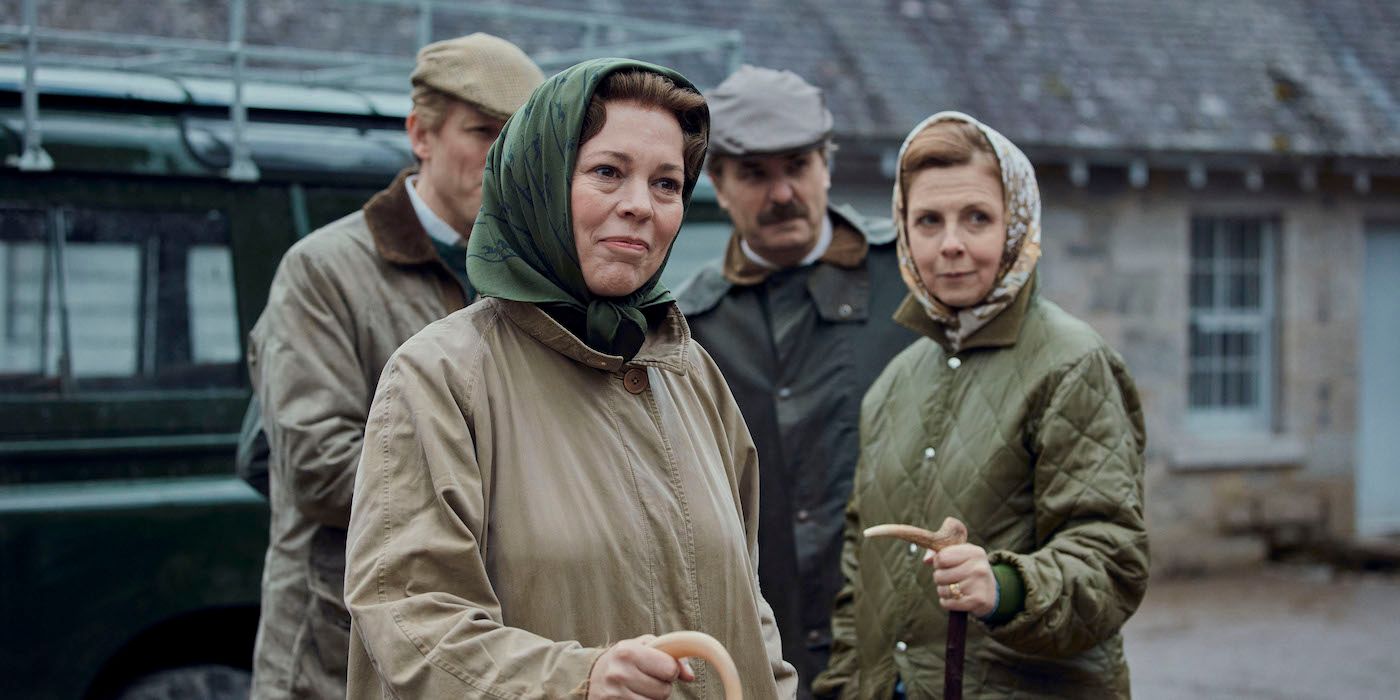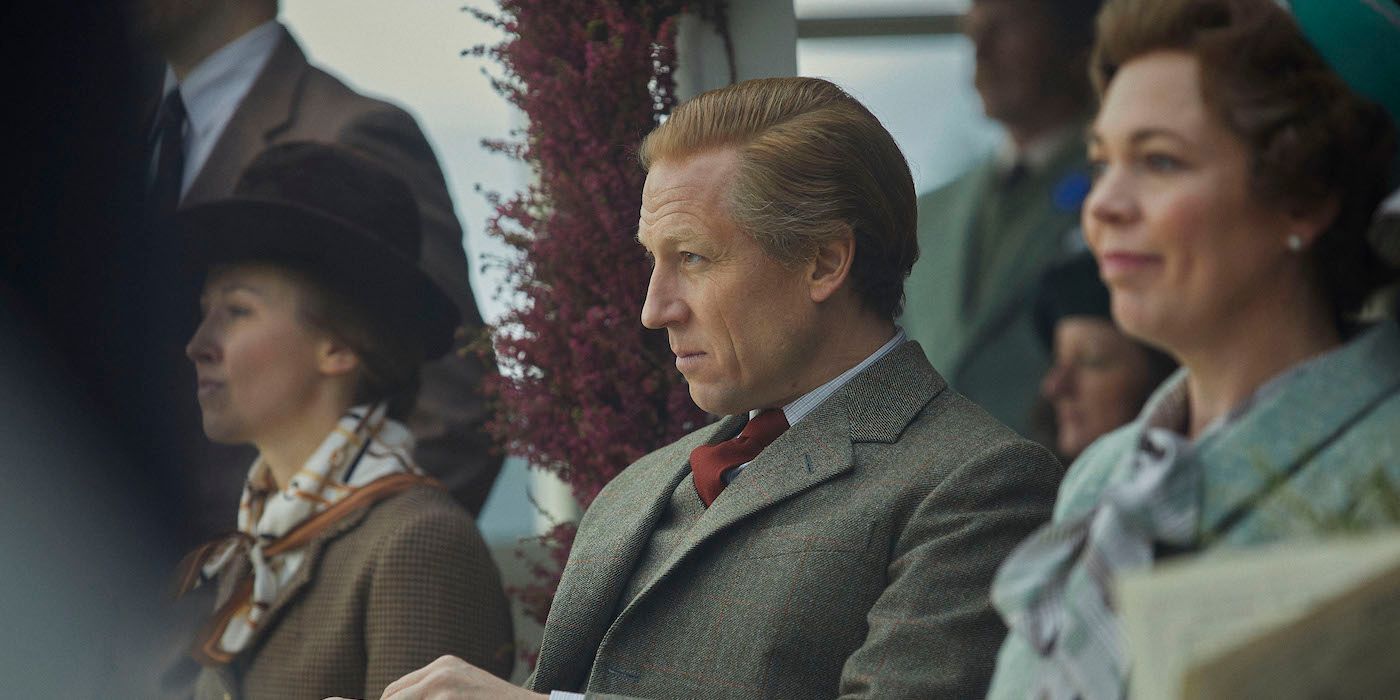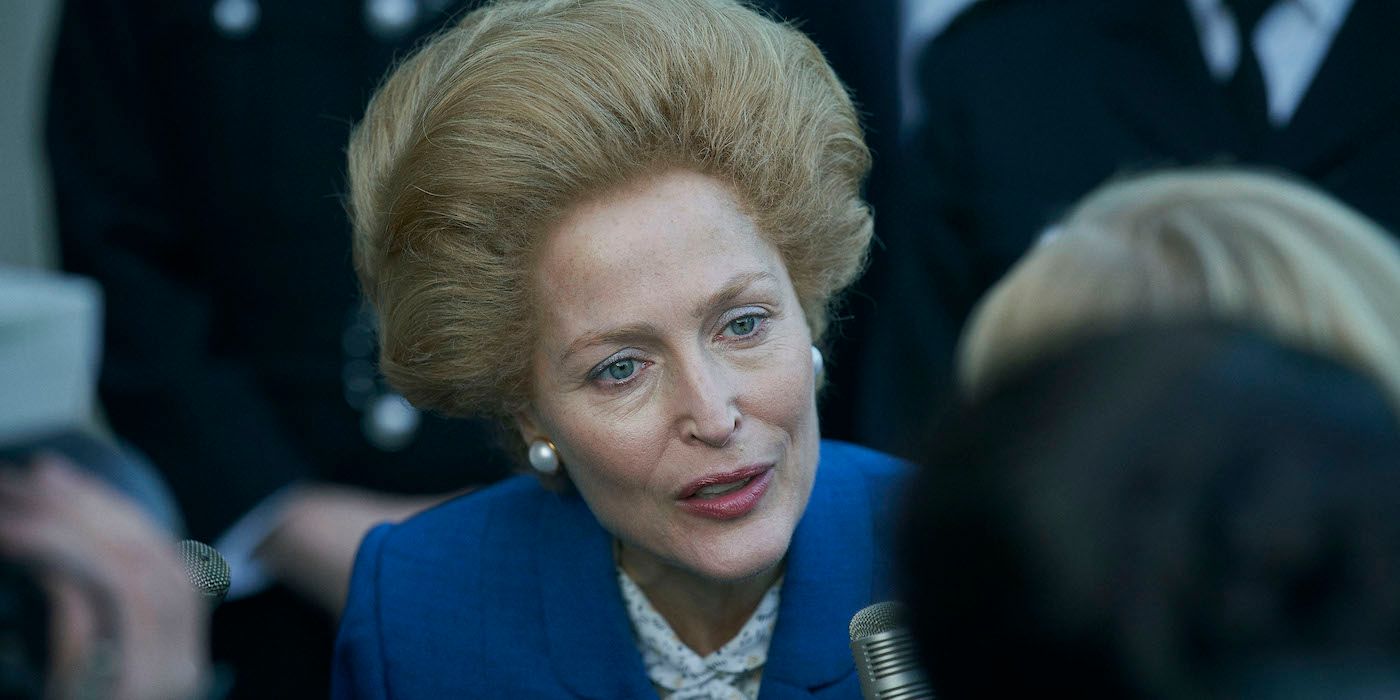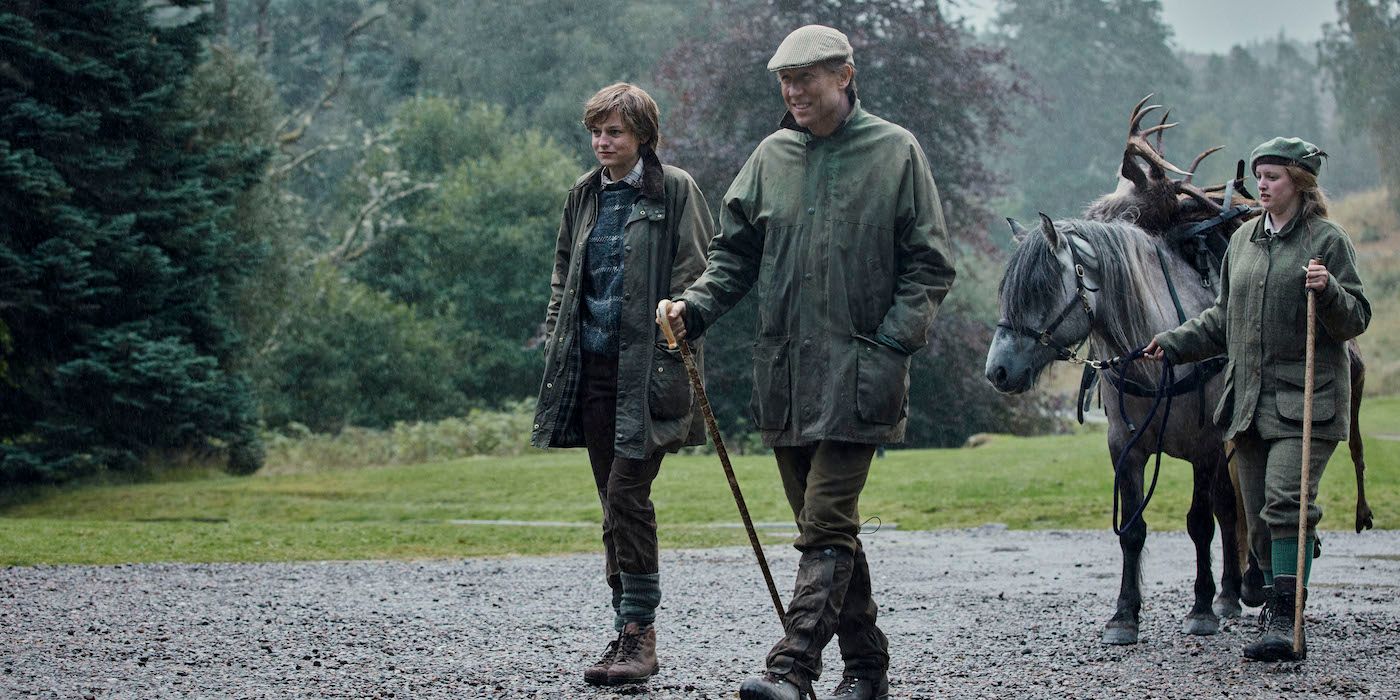When it comes to television families, you’d be hard-pressed to find one more keen on the thrill of the hunt as a group activity than the British royal family on The Crown. In the Season 4 episode “The Balmoral Test,” the family is given the chance to indulge themselves in this posh bloodsport when two high-value targets come wandering onto their lands: Prime Minister Margaret Thatcher (Gillian Anderson) and Diana Spencer (Emma Corrin). As two respective hunts unfold the course of Episode 2, The Crown delivers one of its finest hours as it elevates its ongoing exploration of how power is attained and maintained, primarily when it is a woman entering into an influential role.
“The Balmoral Test” presents two case studies in the pursuit of finding out what it takes to win over the royal family — a powerful ally to acquire if given the chance. But the royal family is an insular organism, sheltered from reality insofar as the lives they lead do not resemble the lives of others, not even the wealthy. Sniffing out weaknesses in an outsider and pouncing is a team-building exercise for The Crown’s version of the royal family. All members come together to push, bend, and perhaps even break the person trying to gain acceptance without them ever knowing they are being tested. If you are strong enough and possess the natural instincts to succeed, you pass the test. As seen throughout the episode, this sport plays out in the form of judgments based on class as well as gender and age.
With the benefit of hindsight, it’s evident from the get-go that Thatcher and her husband, Denis (Stephen Boxer), are completely screwed during their visit in “The Balmoral Test.” The episode illustrates how the newly-minted Prime Minister — and the first woman in the history of the Empire to occupy the position — struggles to make a good impression on the Queen, a woman equal to her in age but superior to her in position within the hierarchy. What The Crown doesn’t make as obvious is that Thatcher also brings a top-notch education to the table as an Oxford graduate, offering some shades of the Prime Minister’s perceived intellectual superiority which will ultimately contribute to her failure with the royal family.
Despite Thatcher being completely appalled by the odd rules of life at Balmoral, be it allowing the staff to unpack suitcases or married couples sleeping in separate beds, she knows her place is precarious. She is unable to win the cooperation of the men in her cabinet back in London, so she knows she has to impress the only other formidable woman in the room; if she can, she returns to London with the cachet needed to win over the men she works with. But Thatcher cannot seem to get out of her own way. Even in her private moments with the Queen, who makes more of an effort than her family to be hospitable, Thatcher’s attempts to relate to her potential ally are expressed with an unconsciously superior attitude. Her whole life has been motivated by a need to prove she is good enough to be in the room and possesses the qualities to succeed, but her skillset is no match for the inscrutable rules the royal family measures her against. As “The Balmoral Test” makes clear, Thatcher may have the brains and the work ethic, but she is too set in her ways at her age and blocked by her own perceptions of the royal family to be the kind of ally the royal family wants as Britain enters into a new decade. And so, Thatcher commits the biggest sin of them all (well, wearing bright blue while trying to hunt a prize stag might be a bigger sin): She leaves early. Retreating, a high-value prize goes to lick her wounds and leaves the royal family to make their final judgments.
Where Thatcher fails, Diana succeeds. She may not possess the education or experience Thatcher has, but Diana brings with her the valuable knowledge that comes from growing up in the upper class. There is also, crucially, a malleability that comes with her youth that the royal family will see as a strong asset. This latter quality is strongly suggested in one of the many clandestine phone conversations between Prince Charles (Josh O’Connor) and Camilla Parker Bowles (Emerald Fennell). Camilla nudges Charles toward Diana because the young Spencer is still a marriageable young woman who will keep the moody Windsor on his feet.
As her visit to Balmoral progresses, Diana’s lightness, innate understanding of the rules of the test before her, and even her performative naïveté impress the royal family. Because of the potent combination of her youth and her class, Diana is given a little more slack with her royal adjudicators. Diana may be an outsider, but she’s not some average citizen despite her playing landlady and house cleaner while living with friends in London. She has always lived with the benefits of the moneyed class and with that comes a lifetime’s worth of knowledge and breeding that comes to Diana’s aid when it comes to making a good impression. Her hunting trip with Prince Philip (Tobias Menzies) goes so well because of this, not to mention the fact that her interests align so well with his. They are cut from the same cloth as outdoorsy, orderly people and this helps Philip be charmed by her. He was once an outsider, too, but gives her higher marks in this “Balmoral test” because they are so similar.
Where Thatcher only knows how to operate as the bullish head of the operation, Diana knows she can succeed as the neck, metaphorically speaking. As it goes, the neck moves and supports the head; without the former, the latter doesn’t work quite as well. In this way, an outsider manages to penetrate the royal family’s frosty exterior. The comfort The Crown’s version of Diana has with her assured place in society near the top of the food chain means she’s been freer to cultivate the unknowable etiquette needs to flourish among people like the royal family.
So, finding a similar opening in the royal family — in this case, as Charles’ wife — and putting her skillset to use comes naturally. Conversely, The Crown’s version of Thatcher has always been on the move, pursuing upward mobility with the hunger and ambition unique to the middle and lower classes who are sold the promise of success if they can make it to the top. Thatcher’s place in the world has never been concrete for too long, so her ability to make the right call when it comes isn’t there. After a lifetime of seeing everyone as an opponent to will into submission, Thatcher cannot grasp her opponent in “The Balmoral Test” — the royal family — because of its inscrutability and thus doesn’t know how to make a winning move.
The first three seasons put their focus on a single woman ruling an empire and wondering what it means to be a woman in a traditionally male-dominated field; in this case, the monarchy. Could she stand shoulder-to-shoulder with the men in the room? Could she listen to advisors, make sensible decisions, and possess the right balance of qualities needed to gain the support of a nation? And, in the midst of all this, could she still lead a fulfilling private life populated by a husband, children, and extended family who must see her as both monarch and matriarch?
The two visits shown in “The Balmoral Test” succeed in expanding on these ideas long pondered on The Crown. Rather than focusing on just one woman’s acquisition of power, we see two women trying to acquire it in hopes of just getting within the orbit of the royal family and earning their favor. What they believe could be an easy task of currying favor with the Queen, another woman, soon becomes a kind of Herculean task that requires them to navigate the complex and unspoken structures of gender, class, and even education. Soon, it is clear to both Thatcher and Diana that even getting the power they seek through favorable royal treatment will mean working toward their goal within a hierarchy constructed with men in mind, just as the Queen once had to do. So, The Crown's expanding on the conversation about what kind of woman gains power by focusing on non-royal women makes "The Balmoral Test" both a great hour of television for The Crown overall and an essential one in Season 4's exploration of how public perception of and access to the royal family becomes more important in the modern era.
As "The Balmoral Test" comes to a close, with the winning test-taker announced, you have to wonder: Is it the royal family who loves the thrill of the hunt? Or, perhaps, is it those outsiders looking in who love it as they hunt the royal family and seek to gain entry into their rarefied proximity?
The Crown Season 4 is now available to stream on Netflix. For more, read Collider's own Matt Goldberg reviewing the latest season.




